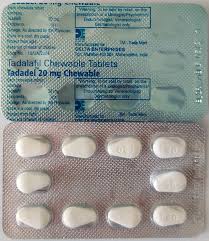
Eliquis: A Comprehensive Guide
Eliquis, also known by its generic name apixaban, is an anticoagulant medication that plays a vital role in preventing blood clots in various medical conditions. This drug is particularly significant for patients who are at risk for stroke due to nonvalvular atrial fibrillation or who have undergone hip or knee surgery. For more information on purchasing Eliquis online without a prescription, you can visit Eliquis https://farmakeioorama.gr/agoraste-eliquis-se-apeytheias-syndesi-choris-syntagi/.
What is Eliquis?
Eliquis is part of a class of medications known as direct oral anticoagulants (DOACs). It functions by inhibiting Factor Xa, an essential protein in the blood coagulation process. By blocking this factor, Eliquis effectively reduces the ability of the blood to clot, which can be crucial in preventing strokes, especially in individuals with certain heart rhythm disorders.
Indications for Use
Eliquis is prescribed for several medical conditions, including:
- Prevention of stroke and systemic embolism in patients with nonvalvular atrial fibrillation
- Treatment of deep vein thrombosis (DVT) and pulmonary embolism (PE)
- Reduction in the risk of recurrence of DVT and PE after initial treatment
- Prevention of venous thromboembolism (VTE) following hip or knee replacement surgery

Benefits of Eliquis
One of the primary benefits of Eliquis is its convenience compared to traditional anticoagulants like warfarin. Here are some notable advantages:
- No regular blood monitoring required: Unlike warfarin, patients on Eliquis do not need frequent blood tests to ensure that their INR (International Normalized Ratio) is within a therapeutic range.
- Fewer dietary restrictions: Patients on Eliquis can generally maintain a normal diet without the need to avoid certain foods that may affect their blood clotting.
- Rapid onset of action: Eliquis begins to work quickly, offering immediate protection against blood clots as needed.
Potential Risks and Side Effects
Despite its benefits, Eliquis comes with potential risks. As with any anticoagulant, there is an increased risk of bleeding. Some common side effects include:
- Increased bruising
- Gastrointestinal bleeding
- Blood in urine or stool
- Headaches or dizziness
It is crucial for patients to be aware of the signs of serious bleeding, such as unusual weakness, rapid heartbeat, or extreme fatigue. Patients should notify their healthcare providers immediately if they experience any of these symptoms.
Contraindications and Considerations

Eliquis is not suitable for everyone. Certain contraindications include:
- Active bleeding or bleeding disorders
- Severe renal impairment
- Hypersensitivity to apixaban or any of its components
Additionally, patients should inform their doctors about all medications they are taking, as certain drugs can interact with Eliquis, increasing the risk of bleeding or reducing its effectiveness.
Patient Management and Monitoring
While Eliquis does not require routine blood monitoring as mentioned earlier, regular follow-ups with healthcare providers are essential. Doctors may assess kidney function, review other medications, and evaluate for any signs of bleeding during these appointments. Additionally, adherence to the prescribed dosage is critical to ensure maximum efficacy.
Conclusion
Eliquis is a powerful medication that significantly aids in reducing the risk of stroke and blood clots in high-risk patients. However, it is essential for patients to remain informed about its benefits and risks. Regular communication with healthcare providers can facilitate safe and effective treatment. Understanding the indications, potential side effects, and when to seek medical help is crucial for all patients on Eliquis.

